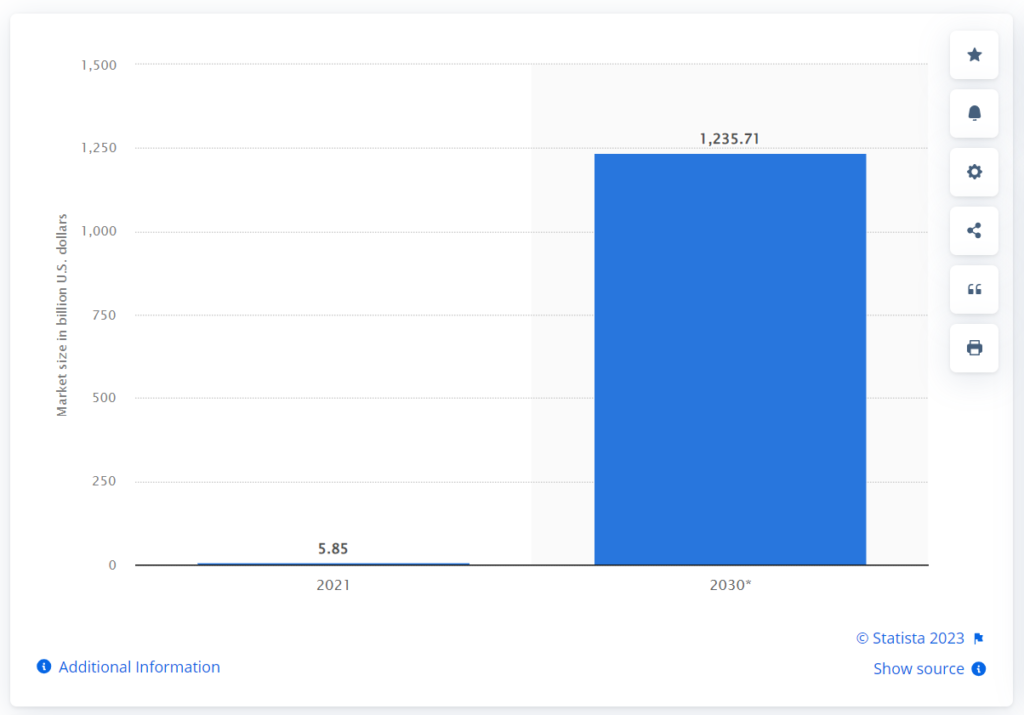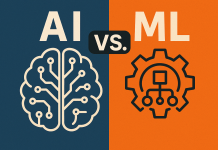The benefits of Blockchain technology have increased with time. It continues to bring a transformative change in the digital world. This is exactly why cryptocurrencies stand to be at their best when they are fortified with cryptographic methods. Blockchain is undefeated when it comes to transparency and security. So, it makes Blockchain technology a smart development with the potential to revolutionize sectors.
Moreover, as it has enabled direct communication and negated the need for middlemen, it has gained immense trust as well. So, rather than a development in the tech area, it’s a paradigm shift. In this article, we will try to capture this paradigm shift. We will cover the benefits of Blockchain technology, key components, programming languages, and more. So, let’s begin.
How does Blockchain technology work?
Blockchain technology operates on a straightforward but dependable concept. In this distributed ledger system, a network of computers records transactions. So, let’s break it down and ensure that you have the Blockchain technology explained:
-
Decentralization
Blockchain operates as a decentralized system. This is unlike traditional systems where a single authority governs everything. Additionally, it operates through a peer-to-peer computer network known as a “node.” Thus, each node replicates the entire Blockchain.
-
Transactions
A Blockchain’s core building blocks are transactions. When it starts, it broadcasts a transaction to the network.
-
Validation
The network then uses consensus methods to confirm the transaction. Furthermore, Blockchain networks employ the most popular consensus process, Proof of Work (PoW). Nodes engage in complicated mathematical puzzle-solving at this point to verify transactions. After this, it is added to a block.
-
Blocks
Blocks are collections of transactions that function as containers for data. Usually, each block comprises a number of transactions. Once completed and authenticated, a block connects to the preceding block. As a result, it forms a chain, hence earning the name “Blockchain.”
-
Security through cryptography
Cryptography secures transactions and also governs the generation of new Bitcoin units. The current block includes the cryptographic hash of the previous block, and it encrypts each transaction. This is one of the biggest benefits of Blockchain technology as well.
-
Consensus
A majority of nodes must agree on a transaction before it can be put on the Blockchain. It, therefore, makes sure that no one person or organization can take over the network or tamper with the data.
-
Immutable Ledger
A transaction is permanently recorded in the ledger once it is added to the Blockchain. So, one of the main characteristics of Blockchain is its immutability. It thus makes it extremely safe and fraud-resistant.
Let us delve deeper and look into the key components of the technology.
Achieve Financial Goals
When striving to achieve your financial goals, it’s vital to pick a savings account wisely. Saving enables you to afford major planned expenses too. This might include buying a home, starting a business, having a baby, taking a dream vacation, or retiring comfortably.
What are the key components of Blockchain technology?
Blockchain technology comprises several key components. These components work together to create its unique features and capabilities. So, understanding these components is essential for comprehending how Blockchain functions and also for knowing the benefits of Blockchain technology:
-
Cryptographic hash function
The cornerstone of Blockchain security is cryptography. A fixed-length string of characters is produced after an input is sent through a cryptographic hash function. Data security and integrity are guaranteed by this hashing. Furthermore, even a small change in the input data causes a large difference in the hash.
-
Blocks
Blocks are storage units for a collection of transactions. Each block normally contains a nonce, a timestamp, and a reference to the preceding block. As a result, the amalgamation of these components creates a block’s distinct personality.
-
Blockchain Ledger
A series of blocks make up the Blockchain ledger. It creates a chronological, unchangeable record of every transaction. It also acts as the Blockchain network’s historical database.
-
Decentralized network
A decentralized network of nodes (computers) powers the Blockchain. Moreover, all of these nodes work together to validate and maintain the Blockchain. As a result, it guarantees agreement on the ledger’s current status. A copy of the whole Blockchain is stored on each node.
-
Smart contracts
“Smart contracts,” or self-executing agreements, have predetermined terms and circumstances. When certain criteria are met, they begin to run automatically. Ethereum made smart contracts widely accepted. As a result, it allows for programmable Blockchain applications.
-
Digital Signatures
Digital signatures are produced using private keys and attached to transactions. They also verify the authenticity of transactions to make sure they are genuine and unaltered.
-
Mining
On PoW Blockchains, miners solve complex mathematical challenges. Prior to being added to the Blockchain, transactions are verified using it. Additionally, miners receive bitcoin in exchange for their labor.
We saw the secure process of how Blockchain works, but what exactly are the benefits of Blockchain technology? Let’s see.
What are the benefits of Blockchain technology?
Did you know? As per a report by Statista, the global Blockchain technology market is predicted to reach $1,235.71 billion by 2030, with an estimated CAGR OF 82.8%, which was once valued at $5.85 billion in 2021.

Blockchain technology offers a multitude of benefits that have the potential to transform various industries. So, let’s look at some key benefits of Blockchain technology below in this section.
Don’t miss out! You can also hire software development services to leverage the benefits of Blockchain technology.
-
Security
Strong security is guaranteed by the decentralized and encrypted nature of Blockchain. Transactions are securely recorded in a way that cannot be altered. So, malicious people find it exceedingly difficult to alter data as a result.
-
Transparency
The Blockchain ledger is open and visible to everyone. This transparency fosters confidence among participants. This is so that anyone can check the validity of transactions and data. It lessens the need for middlemen and raises responsibility as a result. This is one of the most powerful benefits of Blockchain technology, contributing to its popularity.
-
Immutability
Data that has been added to the Blockchain is immutable, which means it cannot be changed. So, this feature is essential for preserving a precise historical record and lowering the danger of fraud.
-
Decentralization
A decentralized network of nodes underlies how Blockchain works. As a result, it eliminates the requirement for a central authority. A single point of failure is less likely as a result of decentralization. Moreover, it increases resilience against system failures or attacks.
-
Efficiency and speed
Blockchain can streamline processes by automating tasks through smart contracts. These self-executing contracts automatically enforce and verify agreements. As a result, it reduces the need for manual intervention and paperwork, thus increasing efficiency.
-
Cost Reduction
By removing intermediaries and automating, Blockchain can reduce transaction costs. This is particularly beneficial in financial transactions and legal processes.
-
Enhanced traceability
This benefit of Blockchain provides product end-to-end traceability in SCM (supply chain management). As a result, it ensures the confirmation of the place of origin and the route taken by products. It also lessens the possibility of fake goods and guarantees product quality.
In short, we can conclude that the benefits of Blockchain technology are known to us. Now, it is time to know a bit more about the technology. This will enable you to make a more knowledgeable choice. So, let us look at the programming language used for Blockchain development in the following section.
What is the top programming language for Blockchain?
There are numerous programming languages that can be used for Blockchain development. The choice often depends on the Blockchain platform and the specific use case. However, few of them rank high on the chart. So, here below, we have some commonly used programming languages for Blockchain development.
-
Solidity
The very first on our list of the most popular programming languages for Blockchain is Solidity. It has been incredibly successful at creating smart contracts for the Ethereum network. Users intend to use the Ethereum Virtual Machine (EVM) with it. Moreover, it is simple to use and can help you extract the benefits of Blockchain technology.
-
Rust
Here comes our second most popular programming language for Blockchain, Rust. Developers use Rust for building Blockchains due to its renowned security features. This is particularly evident when considering the Substrate structure. Also, it employs substrates to individually construct Blockchains.
-
Vyper
Vyper specializes in Ethereum, prioritizing safety and conciseness. Furthermore, developers frequently use it as an alternative to Solidity when creating Ethereum smart contracts. To make the process of software development more effective, you can even hire software development services.
-
JavaScript
Whenever it comes to the development of DApps, the developers typically make Blockchain-compatible decentralized apps using JavaScript. They frequently create server-side apps using the JavaScript runtime Node.js.
To sum up
A significant transformation has taken place in digital commerce. The fundamental reason for this is the benefits of Blockchain technology. They have a decentralized and secure structure. Its promise incorporates aspects of supply chain management in addition to virtual currency.
The ecosystem for this technology is still developing, and programmers are using a variety of coding languages to fully realize its potential. Therefore, the adoption of this innovation marks a significant step towards a more secure and reliable digital future. As a result, it presents opportunities as well as challenges to enterprises, governmental organizations, and society at large.
Author Bio
Katherine Smith is a Tech content writer at Appsierra which is leading company for software development services. She writes about everything related to technology, from blockchain testing services to web application development, agile testing, and mobile app development. With a background as a content writer, Katherine brings a unique perspective to her writing and is always seeking new opportunities to learn and grow as a tech writer.








